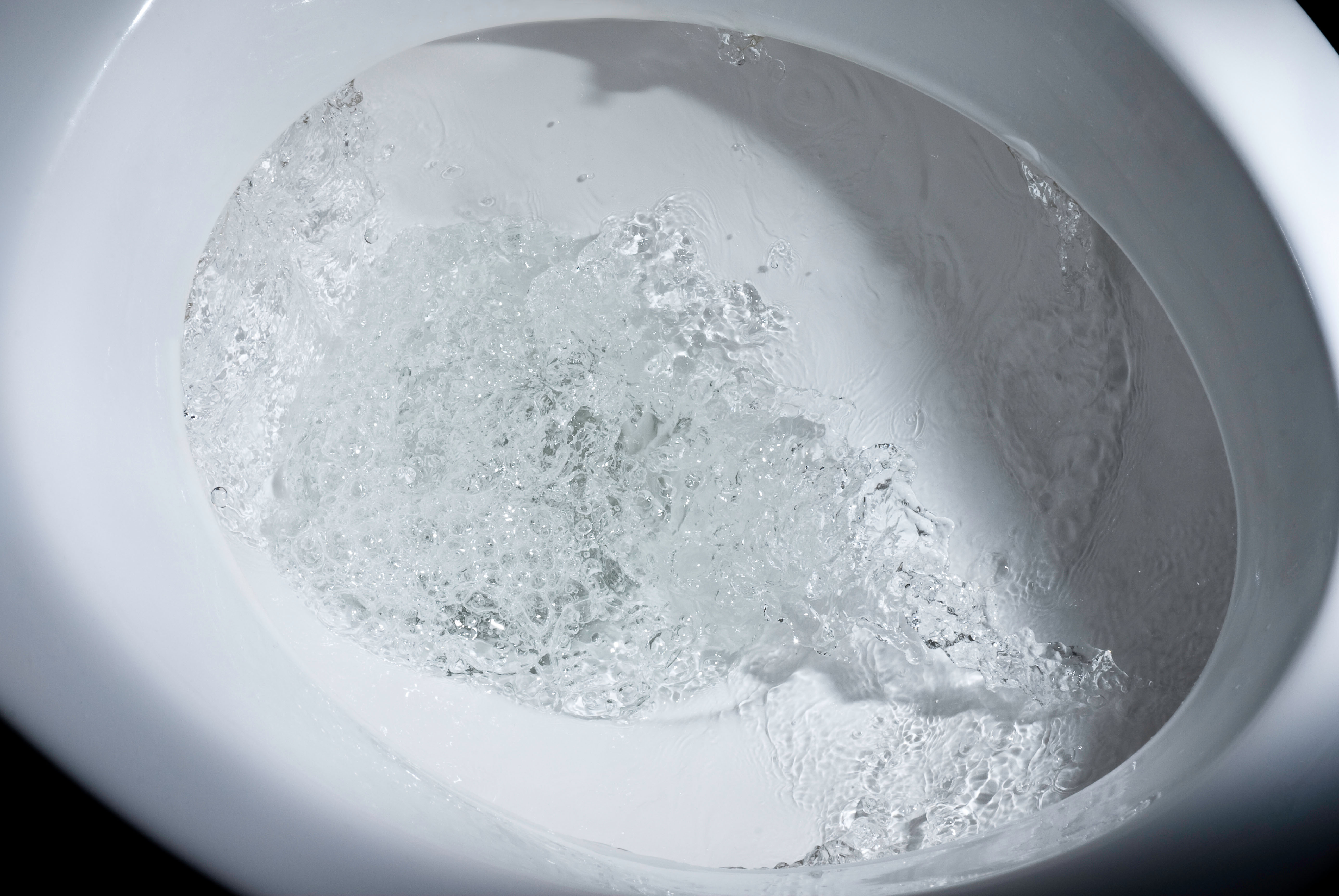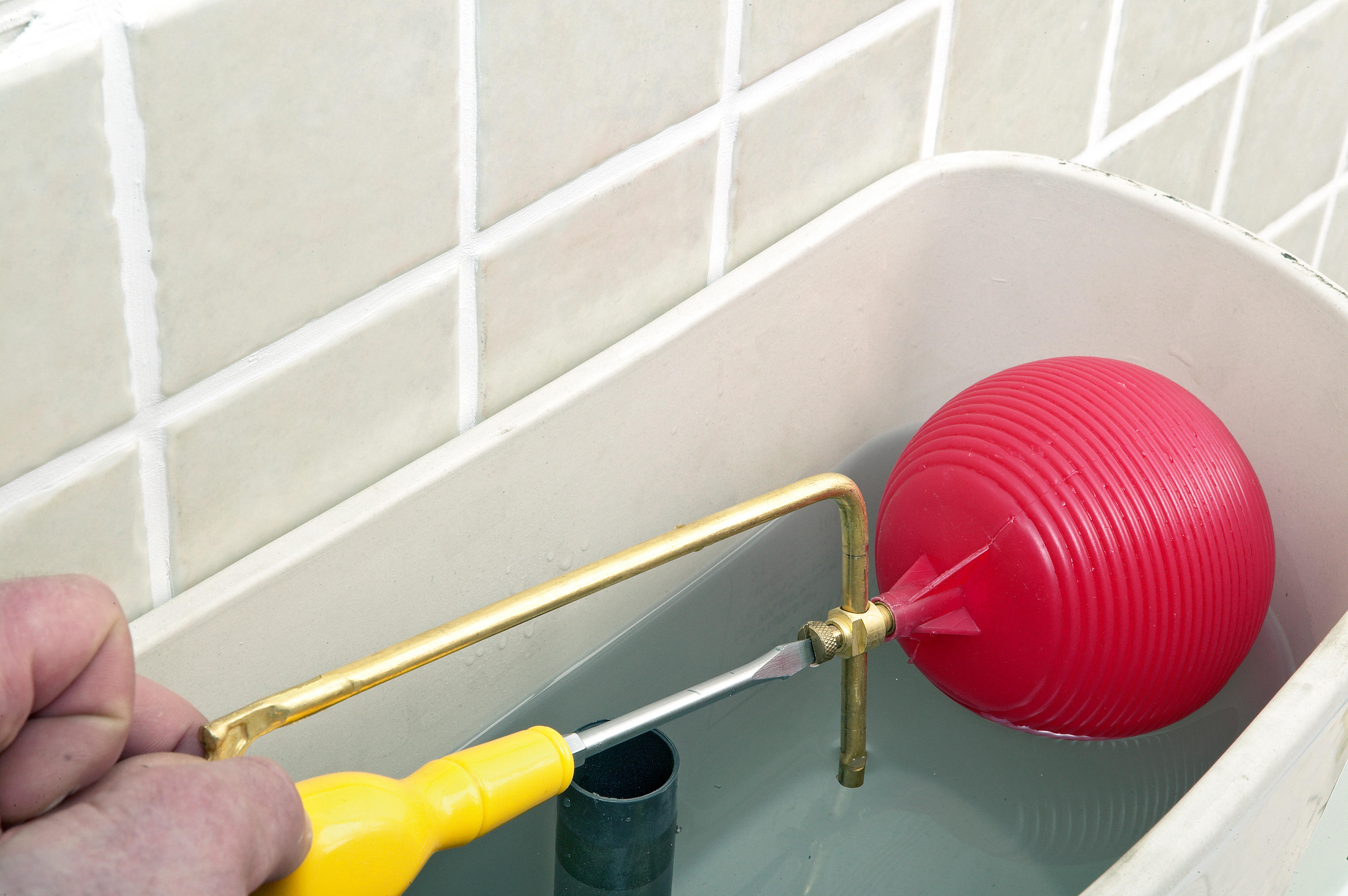Why does my toilet keep running? The 4 reasons you're wasting water
Stop your WC from wasting water and being really annoying – here’s how to fix a toilet that keeps running


Design expertise in your inbox – from inspiring decorating ideas and beautiful celebrity homes to practical gardening advice and shopping round-ups.
You are now subscribed
Your newsletter sign-up was successful
Want to add more newsletters?

Twice a week
Homes&Gardens
The ultimate interior design resource from the world's leading experts - discover inspiring decorating ideas, color scheming know-how, garden inspiration and shopping expertise.

Once a week
In The Loop from Next In Design
Members of the Next in Design Circle will receive In the Loop, our weekly email filled with trade news, names to know and spotlight moments. Together we’re building a brighter design future.

Twice a week
Cucina
Whether you’re passionate about hosting exquisite dinners, experimenting with culinary trends, or perfecting your kitchen's design with timeless elegance and innovative functionality, this newsletter is here to inspire
There are few things more irritating than when your toilet keeps running. As well as keeping everyone awake, or being annoying background noise in the day, it’s also wasting horrific amounts of water.
The good news is that like unclogging a toilet, a toilet that doesn’t stop running after you flush is something a relatively experienced or competent beginner DIYer can tackle themselves.
‘When a toilet keeps running, it is usually one of four problems’ says Jennifer Ebert, Deputy Editor Digital of Homes & Gardens. 'Each is fairly simple to fix by competent DIYers, but our advice would always be to call in a professional if the simplest of the fixes don't work.'
If you aren’t too confident with plumbing tasks around the home, or these reasons below don't account for why your toilet keeps running, then you will be better off calling in a professional to fix a running toilet.
Why does my toilet keep running?
Just like when a toilet won't flush, the reasons a toilet keeps running is often down to poor assembly or a fault that has developed over time. Below, we take you through the reasons.
You will need:
- Channel lock pliers
- Bucket
- Towel or cloth
- Screwdriver
1. The float is too high

The height of the float in your toilet's cistern might be causing your toilet to keep running, and this can usually be easily fixed by DIYers. A toilet's float, which might look like a ball, as in the cistern above, or an upturned cup in newer toilets, controls the water levels in the cistern tank. As you flush, the water leaves the tank and the float drops; as it refills, the float rises until it reaches 'fill level', which then shuts off the flow of water. This level should always be below the overflow tube and fill valve of the toilet.
Design expertise in your inbox – from inspiring decorating ideas and beautiful celebrity homes to practical gardening advice and shopping round-ups.
If water keeps running in the toilet, the float may be set too high and need adjusting downwards. You may just be able to do this by bending the arm; or you may be able to easily adjust it with a screwdriver. Or, the float might be cracked, which can happen in older toilets, which again will make it sit in the wrong position, and it will need replacing.
2. The flapper needs replacing
The flapper is a small rubber stopper that sits in the bottom of the cistern tank and stops or allows water to flow into the toilet bowl. When you flush, it lifts; when the flush is finished, it should create a seal to stop toilet water running. In older toilets, you may find that there is a tank ball and not a flapper.
Old flappers and tank balls don't create the same seal that new ones do, which can allow water to constantly drip or run into the toilet. The only solution is to replace the old one with a like-for-like. To do this, you will need to drain the tank, shut off the toilet's water supply and flush it to empty it. Then detach the chain and attach the new one to it.
3. The chain to the flapper is the wrong length
It may be that your flapper is in good condition, and this should be easy to see. But it may not be creating a good seal because the chain it is attached to is too short or too long. Too short and it will pull the flapper away from the outlet; too long and it may get caught under the flapper, creating gaps in the seal.
4. The refill tube is too long
A refill tube that is too long can suction water out of the fill valve and into the tank, causing a toilet to keep running. To shorten it, you will need to remove it from the overflow and, holding it over the opening of the overflow, trip and clip it to the side of the overflow tube.
Will a running toilet stop eventually?
As fresh water enters the tank, a mechanism eventually shuts off the water flow and the toilet will stop running. However, when things go wrong with the valve, flapper or overflow then it’s best to get it sorted.
How expensive is a running toilet?
While it will cost between $100 and $400 to stop a toilet running if you call in a professional, allowing it to keep running can cost much more in just a few weeks. It's estimated that a badly running toilet can waste a couple of hundred gallons of water a day, and thousands of gallons over just a few weeks; this is enough to make your water bills increase by an estimated $200 a month.

Hayley is an interiors journalist, content provider and copywriter with 26 years experience who has contributed to a wide range of consumer magazines, trade titles, newspapers, blogs and online content. Specialising in kitchens and bathrooms, she has twice won the CEDIA Award for Best Technology feature. Hayley writes for H&G about kitchens, bathrooms, cleaning, DIY and organizing.